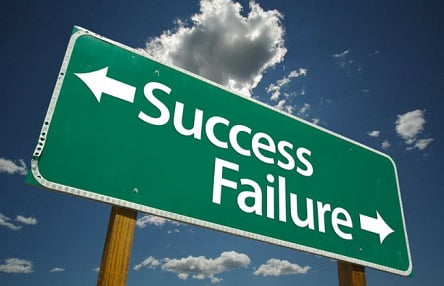The Rules of The Game
Once upon a time a busy king decided that he needed to appoint a chief counselor to help him manage the affairs of the kingdom. So one day he announced a contest between three of his knights to determine who would get the job. The task would be to see who could fill a barrel with water the fastest with the entire kingdom looking on.
The day before the contest the king gave each knight the item they were required to use to fill their barrel. To the strongest knight of the kingdom he gave a large bucket. To the swiftest knight he gave a pitcher. And to the last knight – a regular knight nobody thought of as having any special abilities – he gave an ordinary drinking mug. The knights were then given identical materials to build their barrels and were then commanded to have them ready for the contest on the morrow.
Discouragement…and hope
When the regular knight had first read the scroll from the king’s messenger that he had been selected to be in the contest he was nervous, and when he learned who his opponents would be his nervousness turned to anxiety. But when he learned the rules – that he would only have an ordinary drinking mug to fill his barrel – he was utterly distraught as he considered the nearly impossible (not to mention humiliating) situation he faced. He couldn’t relax, he couldn’t eat, and he couldn’t even concentrate on getting ready for the contest. It seemed like the only thing the regular knight’s mind could focus on was the sickening feeling of stress he felt in his stomach at the thought of the upcoming competition. Finally, tired of feeling in disarray, he stepped out of his cottage to take a walk in an attempt to clear his mind.
A short time later it just so happened that the regular knight encountered a wise old merchant he knew who had run a successful mill by the river for many years. Desperate to talk to someone who might be able to help, the regular knight told his friend about his problem. The wise old man carefully considered the regular knight’s plight, and after a great deal of thought he finally said, “There is simply no way that you can compete with the strength or speed of the other two knights” (the regular knight slowly nodded and looked dejectedly down at his feet).
But the wise old man paused as he thought a bit more and then added, “But the contest isn’t about your individual strength or speed, it’s about filling a barrel with water as quickly as possible” (the regular knight now looked up hopefully and began to pay closer attention). Then he continued, “In all my years at the mill I probably saw a million barrels, so I can tell you from experience that few people in our kingdom know how to make a good one. It’s not an easy thing to do, especially with as little time as you have. But what if I taught you the techniques necessary to make the perfect barrel, one that wouldn’t leak at all? That way, even though you wouldn’t be able to pour water at the same rate as the other knights, you might still have a chance to win the contest, because your barrel would retain all of its water while theirs might leak quite a bit if they don’t prepare as carefully as you do.”
The regular knight was stunned by the old man’s simple yet profound advice, and after turning it over in his mind for awhile he quietly said, “You know, I think that can work.” And with that realization the regular knight felt a tremendous surge of motivation, strength and energy because, for the first time, he truly felt that he had a chance to win the contest. And it was all because he had a plan, a plan that he really believed could give him a shot at victory. Now, instead of dreading the contest and just wanting it to be over, the regular knight was anxious to get to work. He rushed back to his cottage and immediately began constructing his barrel, carefully following the instructions of his wise friend. It took much longer than he thought it would, and he had to start over a few times, but by working all through the night he was able to finish the barrel with just enough time to make it to town the next morning for the contest.
The regular knight arrived at the arena without a minute to spare. He had been working so hard that he hadn’t thought much about the event itself, so at first he was a bit overwhelmed by what he saw. Practically the entire kingdom was on hand, and across the way were his huge and fast opponents. Silence fell upon the crowd as they looked upon the regular knight. There he stood disheveled, unwashed, unshaven, and clearly wearing the same (now wrinkled) clothes that he had on the day before. As the regular knight made his way to the starting area, mug and barrel in hand, the whispering began, and he felt as if every eye was upon him and that they were all asking the same question, “What is he doing in the contest, anyway?”
Suddenly the regular knight felt completely out of his depth, and he was sorely tempted to ask himself the same question. But at that critical moment he looked down and saw the perfect barrel in his hand. Then he remembered all of the work, planning and sacrifice that it represented. Thinking about that filled him with a quiet confidence and he calmly took his place at the starting line, looked straight ahead and said to himself, “I’ve prepared for this moment…I’m ready.” And with that the contest began.
The Contest Unfolds
At first the contest went as expected. The strong knight wasn’t that fast making his way back and forth across the arena between the water source and his barrel, but he was able to draw large amounts with his bucket and pour water into his barrel at a measured pace. Armed with his pitcher, the swift knight couldn’t pour as much water into his barrel per trip as the strong knight but, due to his great speed and seemingly endless endurance, water seemed to be going into his barrel at just as fast a rate. As a result, a tense excitement gripped the crowd, because it looked as if the contest was going to go down to the wire.
As all this was happening the regular knight methodically made his way back and forth between the water source and his barrel. Some briefly paid attention to him long enough to feel sorry for him. Surely he had to be a bit embarrassed down there running around with his pathetic little mug with no chance of winning. Others singled him out, laughing and jeering at him, secretly glad that they weren’t called upon by the king to endure such public humiliation. But for the most part people simply ignored the regular knight. After all, he wasn’t going to be a factor in the contest; everyone supposed he was just there to round out the field.
Then, as the contest wore on, something happened. The water in the regular knight’s barrel got high enough that it caught glints of the morning sun, drawing the attention of the crowd. But what truly shocked them was what they didn’t see: there weren’t similar signs of progress in the barrels of the other two knights. Everyone wondered how this could be. Was it the angle of the sun playing tricks on their eyes? Then it dawned on the crowd what had been happening: the other knights’ barrels had been leaking water all along, something that hadn’t been obvious before because the ground around the barrels had gotten so wet due to the spilling that had been occurring during the course of the contest.
A spontaneous cry suddenly broke through the shocked silence that had fallen on the crowd, “Let’s go regular knight!” That caused a bit of a stir among the spectators; they weren’t quite sure of what to make of the scene they were witnessing. Then someone else yelled, “You can do it! Do it for the regular people!” At that the crowd began to buzz with excitement, and more began to cheer on the regular knight. It seemed as if he had magically transformed before their eyes, because now when they looked upon him they no longer saw a regular knight; they saw the people’s knight, their knight. And so the cheers of the crowd grew louder, and louder and louder…
The regular knight had been concentrating so much on the contest that he hadn’t been paying much attention to the crowd. Fill the mug…pour…run for water. Fill the mug…pour…run for water. Yet in the midst of his efforts he noticed that the arena had grown strangely quiet, and then he even thought he heard a few people cheering him on. After that, however, all he could tell was that the crowd had gotten unmistakably louder and more animated. Clearly, he thought, one of the knights must be getting close to winning the contest.
A Run For the Money
Now curious, on his next trip to pour water into his barrel the regular knight paused a moment to see how things were going. To his astonishment he saw that his own barrel had filled up quite a bit. He quickly looked at the barrels of his competitors and saw that they weren’t making similar progress. Then it hit him: he was the one that was winning! Suddenly he no longer felt any fatigue from either the contest or his lack of sleep from the previous night, and with a jolt of excitement he took off to get more water.
The strong and the swift knights had also noticed the activity in the crowd and they, too, took a look in their barrels, each certain that they were the ones on the cusp of victory. But after doing so they were stunned, and it was now their turn to feel a sense of panic. Despite all of their efforts there was hardly any water in their barrels at all, but the regular knight’s was filling up! After hurried inspections they realized that their barrels were leaking badly, and so they frantically tried to replicate in a few moments the kind of workmanship it took the regular knight all night to produce. However, the strong and the swift knight soon realized that with no tools, no time and the pressure of the contest upon them, it was impossible to do anything to their barrels at this point that would have a meaningful effect. As a result, they felt the only course of action left to them was to try and pour water into their barrels at an even faster rate.
With that singular thought in their minds the strong and the swift knights, in a final desperate attempt to seize victory, reached down into their deepest reserves and began to compete with an almost maniacal fury. The strong knight had never exhibited such raw power; the swift knight had never run with such breathtaking speed. For a moment, despite the burst of energy he had received from catching a glimpse of victory, the regular knight was almost overcome by the awesome display put on by his rivals. But, inspired by the knowledge that his plan was working, he bore down and relentlessly continued on.
Things went on like this for a time when finally, with the entire kingdom looking on, water flowed over the top and then down the sides of the regular knight’s barrel and in a slow, almost surreal fashion. The contest was over. The crowd, which had already become extremely loud by this point, let out a deafening roar. The regular knight, who everyone had previously considered to be average at best, had pulled off the most stunning upset anyone had ever witnessed, a victory for the ages. And so the crowd celebrated, but it wasn’t just for the regular knight that they cheered. It was also for the idea he represented, that everyone who had ever been thought of as “regular person” had the potential to accomplish great things in the face of overwhelming odds.




 Now I am going to give you the next two secrets for wealth creation… Always do the math and avoid complexity. Don’t leave the math to someone else. Do it yourself. It is really not that hard. Most
Now I am going to give you the next two secrets for wealth creation… Always do the math and avoid complexity. Don’t leave the math to someone else. Do it yourself. It is really not that hard. Most  Wait a minute…we can deduct some things because you probably have some future income already secured. How about Social Security? (Yeah, it will probably still be around even with all the politics). Do you have a
Wait a minute…we can deduct some things because you probably have some future income already secured. How about Social Security? (Yeah, it will probably still be around even with all the politics). Do you have a 